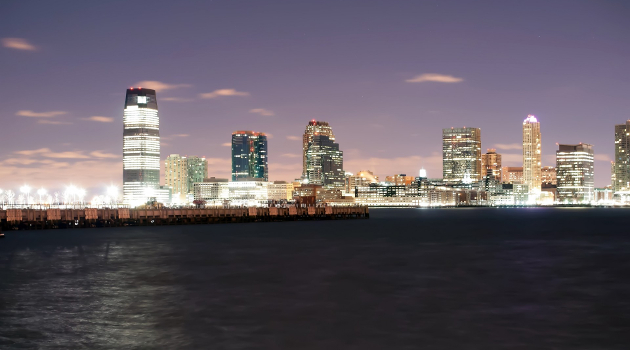According to Freedom in the 50 States, which we reviewed a couple of days ago, New Jersey is in the bottom 10 and has been moving in the wrong direction.
This dismal ranking is not an anomaly. New Jersey also is in the bottom 10 of states according to Economic Freedom of North America, and the Garden State is dead last according the State Business Tax Climate Index and State Fiscal Condition.
In a perverse way, I admire New Jersey’s politicians. They’re not satisfied with the state’s low scores. They want to become even less competitive. If that’s even possible.
As I noted in the interview, the latest proposal for a “rain tax” isn’t necessarily objectionable if examined in isolation.
But in the context of New Jersey’s fiscal deterioration, it’s almost as if politicians are writing another passage in a very long suicide note for the state.
Consider what happened recently with the gas tax, as explained by the Wall Street Journal.
…a silver lining used to be the Garden State’s relatively low gasoline tax of 14.5 cents a gallon—second lowest in the U.S. No more, and therein lies a tale of why taxing the rich to finance government is an illusion. In October 2016, then-Gov. Chris Christie signed a bill raising the gas tax by 22.6 cents to 37.1 cents a gallon
…the bill also included a clause that automatically raises the gas tax if it doesn’t produce the expected revenue each year. This is a self-fulfilling economic prophesy. A higher gas tax causes people to drive less, which in turn has meant that revenues have fallen short of the expected $2 billion target. So on Oct. 1 the gas tax will rise another 4.3 cents to 41.4 cents per gallon, which will be the ninth highest in the U.S. …This will be the state’s third tax increase in four months, following June’s increase in income and corporate tax rates. …The larger lesson is that sooner or later the middle class always gets the bill for bigger government. Higher income and corporate taxes drive the affluent out of the state, which means less revenue. That leaves the middle class to pay in higher sales, property and now gasoline taxes.
Needless to say, New Jersey’s taxaholic lawmakers want even more revenue.
Here are some excerpts from a report by Politico.
Gov. Phil Murphy said Wednesday he may propose new tax increases when he unveils his budget in March, saying he’s worried that the state has not done enough to achieve what he called “tax fairness.” …The governor…had sought some $1.7 billion in new taxes…
Murphy was met with fierce resistance from fellow Democrats in the Legislature… Murphy ultimately agreed to…$1.6 billion in annual revenue. …Murphy, speaking at a church in Newark where he delivered a speech on his first-year accomplishments, said he needs to leave his options open as he starts to prepare a budget… “I would say everything is on the table. Period, full stop,” he added when pressed again about the idea of new tax increases.
If all this sound worrisome, that’s because it is.
But it gets even worse. As I warned at the end of the interview, the 2017 tax law restricts the ability of federal taxpayers to deduct taxes paid to state and local governments.
And that means the full burden of those taxes is now much more explicit, which means more and more taxpayers in high tax rates are going to “vote with their feet” and move to states with less onerous fiscal regimes.
In other words, New Jersey politicians are making their tax system worse at precisely the moment that the geese with the golden eggs have more incentive to fly away.
at precisely the moment that the geese with the golden eggs have more incentive to fly away.
Insane.
P.S. Given this grim news, I’m surprised that fewer than 9 percent of people picked New Jersey to be the first state that will suffer fiscal collapse.
P.P.S. What’s really remarkable – albeit in a very sad and tragic sense – is that New Jersey in my lifetime used to be like New Hampshire, with no state income tax and no state sales tax.
P.P.P.S. There is a Jersey with good tax policy, but it’s far away from the American version.
———
Image credit: alex grichenko | CC0 Public Domain.

